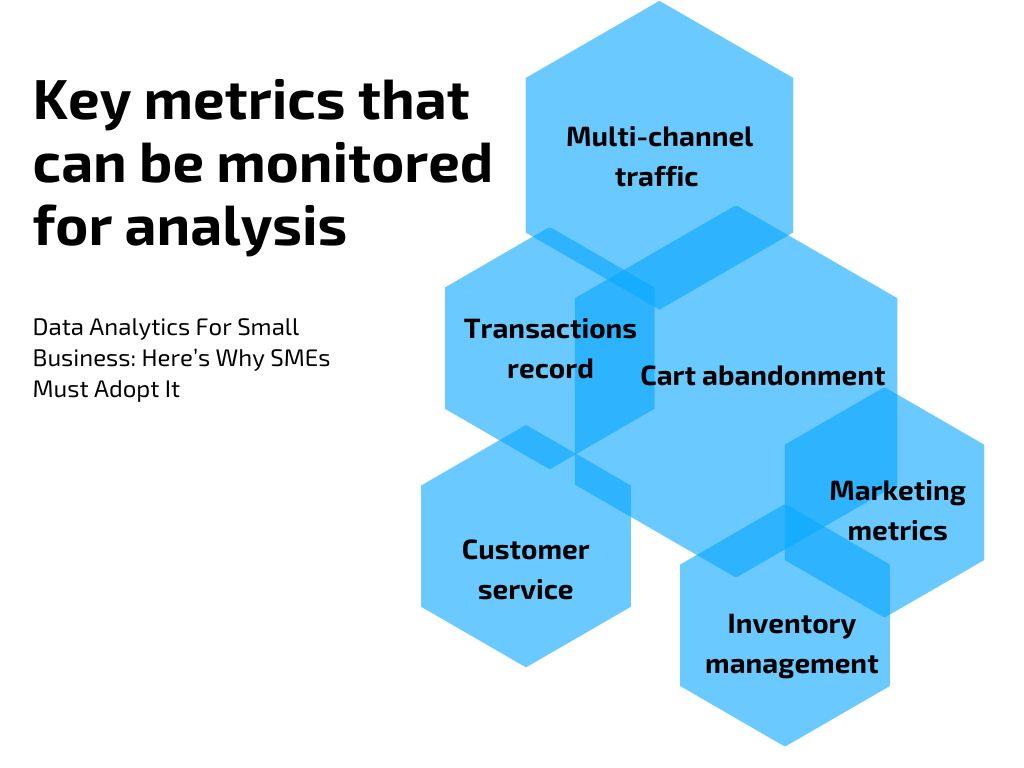Data Analytics for Small Business: Here’s Why SMEs Must Adopt It
A new report based on a survey of small and medium-sized enterprises (SMEs) by the Singapore Institute of Technology and the Institute of Singapore Chartered Accountants has come as an eye-opener.
The report said that about 70% of the 575 SMEs surveyed had not yet adopted data analytics solutions and services, with many of them being familiar only with spreadsheets and databases, suggesting a lack of awareness and understanding of advanced data analytics.
But the positive news was these SMEs were open to learning about how data analytics solutions and services could benefit them.
While earlier global studies showed that more and more enterprises, including SMBs, were taking to data analytics services, this new research has kind of put a different spin.
While there can be no doubt that a percentage of organizations around the world today, as compared to say about five years ago, have moved on from conventional methods of analytics to algorithm-based ones, what’s equally true is that many of them have also moved on from the simple collection of (big) data to the analysis of this data.
A few others have even started using commercial machine learning (ML) in data analytics for small businesses.
Table of Contents
- What does Data Analytics for Small Businesses Mean?
- Key Metrics that can be Monitored for Analysis
- what is the Great Advantage to be Derived from becoming Data-Centric?
- The First Time
Yet, the new report by the Singapore-based agencies tells us that there are small businesses who willfully continue to carry on operations the old way, without any data backing their decisions. Some were even intimidated by the very idea.
We at Express Analytics have often said this — data and its analysis is the modern, scientific way of doing business and staying ahead of the game.
Data alone does not drive your business. Decisions do. Speak to Our Experts to get a lowdown on how data analytics can help your small business.
In fact, some small businesses that had previously adopted data analytics solutions were now in the next phase of the process — they were well on the way to transform their organization into a data-centric one.
What does Data Analytics for Small Businesses Mean?
What do data analytics consulting services and solutions for small businesses mean? Here’s a simple explanation of data-centricity: In the way of doing business in the modern world, data is considered an asset as tangible as a company’s hardware or its headquarters building.
It is at the heart of the enterprise’s operations; in fact, the entire IT and business architecture is built keeping in mind the fact that data is a prime and permanent asset.
Data-centricity can be explained thus: an enterprise moving away from an application-centric to a data-centric way of doing business. In such a data-driven organization, data analysis flows from the top down.
In a data-centric design, however, data analysis flows in the exact opposite manner but feeds into operations.
Business teams should be able to go beyond the mere collection of information and monitoring: they need to analyze data in real-time to extract value from it to pass down the analyses to key decision-makers as quickly as possible.
Schedule a Consultation to Know More About How Express Analytics’ BI and ML can Increase Your Company’s ROI
Here are some of the key metrics that can be monitored for analysis:
- Multi-channel traffic such as website visits, social media interactions, etc.
- Transactions record
- Cart abandonment
- Marketing metrics
- Inventory management
- Customer service
But what is the great advantage to be derived from becoming data-centric?
- First and foremost, a data-centric model gives a massive financial lead to enterprises adopting this approach, starting with savings on infrastructure and reduction in other recurring costs
- Makes the entire enterprise “data-smart”, and not just a few team leaders
- Can be used to digitally disrupt the market a business is in
- No more data silos within the organization
But all that is true for companies that are trying to be data-centric. What about those, for example, the SMEs, who have not even started on the data analytics journey?
To this lot, we say, you need to embrace change. Businesses today need not only to work smarter but also faster in order to gain from the valuable insights derived from their data. To reiterate, all businesses collect data, and to not analyze this treasure-trove for better business decisioning and to keep your company ahead of the competition means wasting precious resource.
Time is of essence today for many businesses to translate data-related value into results.
Whether in logistics or retail, by having access to analytics, your company can leverage advanced end-to-end delivery, helping the front and back-end, in the process.
The First Time
If your enterprise has eventually come around to the view that it does want to be a data-centric one, here are some decisions you need to take first:
Ensure that your business goals are aligned with your service, solution, or product goals.
For example, if your business goal is to increase revenue, consider how data will help you achieve it. You probably will have to ask these questions:
- Which of my services, solutions, or products are revenue drivers?
- What data are they collecting or not collecting?
- Who will have access to this data and the analytics?
Understand your data’s baseline metrics and how to measure them
Data quality means different things to different people. All your teams and their members must be aligned to “the single source of truth”.
For teams to leverage operational data effectively, they must rely on a single source of truth, i.e. the same data to make their decisions.
For this, they need to establish the baseline metric of data accuracy that everyone in the company has to follow. It has been often found that enterprises face data-related hurdles like multiple sources of data, a lack of collaboration between teams, and low data accuracy.
There are many other questions that you need to answer before embarking on the data analytics journey; we’ve barely listed the two most important ones.
For that you may read our earlier blog posts on:
From Data To Decision: Why companies fail to benefit from such a long journey


